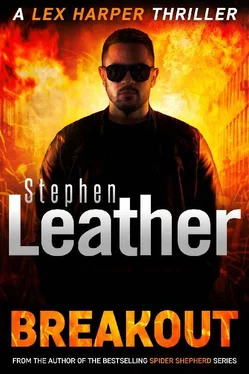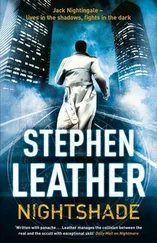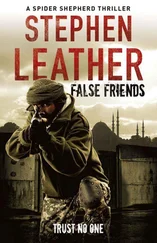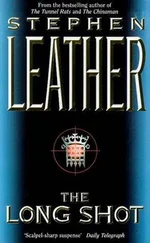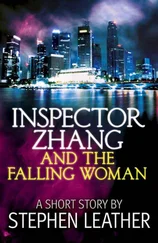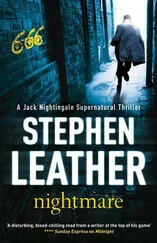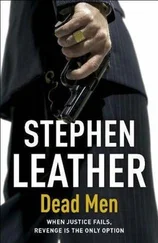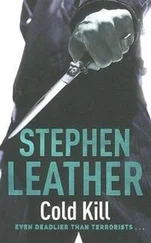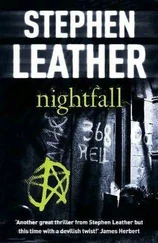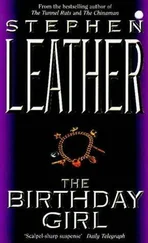Harper pulled out a wad of notes and peeled off a few. ‘Okay,’ he said. ‘No time like the present.’
They filed through the crowd outside the gates, earning themselves a few hostile looks and muttered comments from those still waiting for the guards to let them in. Among them were a group of prostitutes who eyed Harper and Ricardo with calculated interest and stared at Lupa with ill-concealed hatred. They stepped aside to let them through, and then resumed negotiations with the prisoners pressing against the inside gates. They had already been shouting themselves hoarse, calling to relatives, would-be visitors and the waiting prostitutes, or just begging for money, and they now redoubled their shouts as they saw tourists approaching.
Harper slipped fifty dollars to the guard Ricardo had done the deal with. He held them back while he checked the notes to make sure they weren’t counterfeit, as many were throughout South America, and then opened the inner steel gates and ushered them through. Harper heard them clang shut again behind them. For better or worse, they were now inside the most notorious prison in South America. The watch towers at the corners of the jail were high above them and Harper could see the faces of the guards with their rifles slung over their shoulders as they leaned over to stare down into the courtyard. As he glanced around he saw big CocaCola signs fixed to the walls on either side of the entrance. ‘What the hell?’ he said. ‘They’re advertising to the inmates?’
‘Of course,’ Ricardo said. ‘Embol, the main brewery here, has the rights to bottle and sell CocaCola in Bolivia and they made a deal with the prisoners. Rival brands are banned, so no one else is allowed to supply beer or soft drinks to the prison, and in return Embol paid some money to the prison bosses, but also donated stacks of chairs, tables and sun umbrellas to be used by the prisoners. Every section has its own bars and restaurants, so Embol is doing very well out of the deal. So are the guards, because, like everything else, deliveries have to come through the main gates, and they don’t let anything pass without a bribe.’
Harper grinned. ‘From what I’ve seen of the country, everything in Bolivia is absolutely shambolic, with the exception of the corruption which seems to be remarkably efficient!’
The paved yard in front of them was packed with prisoners, just standing and staring, or sitting on stone benches around the brick planters out of which trees and shrubs were growing. Some of them were holding the handles of empty wheelbarrows.
‘What do they use those for?’ Harper said.
‘Those are the porters,’ Ricardo said. ‘Anything you want to bring into the prison, you just bribe the guards and then pay a porter to deliver it to your cell.’
There did not appear to be any prison uniform, because all the inmates Harper could see were wearing their own clothes, mostly jeans and sweatshirts or hoodies in varying states of repair. Some prisoners ignored the new visitors, or gave them hostile stares, but others crowded around Harper, begging for money or offering to sell him souvenirs of the jail or cocaine - ‘the purest and finest in Bolivia, señor .’
The guard waved his nightstick to open a way through the crowd and led them through a doorway and up a rickety flight of steps to a room lit by one of the arched windows they had seen from outside. He had a muttered word with the chief warden, Carlos Fernandez, a morbidly obese man in a uniform stained with sweat patches, with his body bulging out of every seam. He prised himself out of his sagging chair to greet them and trousered the fifty dollars Harper proffered without even glancing at it. ‘My assistant here will complete the formalities,’ he said, pointing to the guard who had brought them in, as he lowered himself back into his chair and went back to watching a Spanish football match on the TV that was fixed to the wall facing his desk.
The guard asked for Harper’s passport and the ID cards of the other two, then laboriously copied the details into a ledger and wrote a number alongside each entry. He then put the passport and the ID cards in a desk drawer and picked up a black marker pen. He mimed pulling up their sleeves and wrote the corresponding numbers on their left forearms. He gave a gap-toothed smile and said something in Spanish to Ricardo. ‘No number, no way out of the prison,’ Lupa said, translating.
‘Yeah, I guessed as much,’ Harper said.
The guard searched each of them in turn, patting them down, getting them to turn out their pockets and even open their mouths so he could check they had nothing concealed in their cheeks. The guard then recited the rules: no film, photography or sound recording and all visitors had to be out of the prison before the 6pm curfew. He took them back down the stairs and left them in the courtyard as he strolled back to the entrance.
‘Are we good to go?’ Harper said.
Ricardo nodded. ‘Just one thing. Being a gringo in here is bad enough but this is definitely not a good place to be mistaken for an American, because they’re all assumed to be spies or narcs from the DEA. So if any of the prisoners say Yanqui ? to you, say “No, Inglés!” at once. If they think you might be a cop, an informer or a narcotics agent, someone will try to stab you, so keep alert.’
Harper smiled. ‘Thanks for the warning,’ he said, ‘but alert is my default setting. You look after you and I’ll look after me.’
CHAPTER 11
Ricardo led the way across the main courtyard of San Pedro and as he did so, Harper noticed a couple of prisoners wearing red jackets with TAXI written on the back. ‘Taxi?’ he said. ‘What the hell is that about?’
‘They’re guys who carry messages for wealthier prisoners or search for people if visitors arrive unexpectedly. They charge one Bolviano - about twelve cents at the official rate - for each message they carry. So they don’t earn much but it’s enough to buy food.’
He led them into a passage on the far side of the courtyard. ‘This is the callejón - the alley as you would say - the main gateway from the entrance to all the other sections of the prison.’ The broad passageway was lined with stalls selling fruit, vegetables, used clothes, newspapers and DVDs, and there was also a more permanent food shop and a café/restaurant.
‘You won’t find this in any British prisons,’ Harper said, shaking his head in disbelief.
Ricardo smiled. ‘There are a lot of things here that you won’t find in any other prison, not just in Britain but anywhere else in the world. At night the doors at either end of the Callejón are closed and it becomes a place to sleep for those who don’t have a section - either from choice or because they’ve been expelled from their section by the other inmates, or most likely, simply because they don’t have enough money to buy or rent a space in a cell, or even pay the entrance fee to a section.’
He led them into the first of the prison’s sections, radiating from the central courtyard like the spokes of a wheel, each one separated from its neighbour by one or more courtyards. Harper noticed at once that there were no bars on the windows of the cells and some did not even have a lock on the doors. ‘No locks? No bars?’ he said. ‘Not very secure is it?’
Ricardo laughed. ‘Prisons here are nicknamed depósitos - and, just like a depósito bancaro - a bank deposit - or a depósitos agua - a water tank - the guards’ only interest is in making sure that nothing escapes from it. So San Pedro is run by the prisoners, not the guards. There are only about a dozen guards and they just control the entrance and virtually never come into the rest of the prison. Nor do the police, not even to investigate murders. The prisoners have their own security force called the Disciplina - no one serving less than a thirty year sentence is allowed to join them - and they keep discipline and punish offenders, usually by stabbing them.’
Читать дальше
